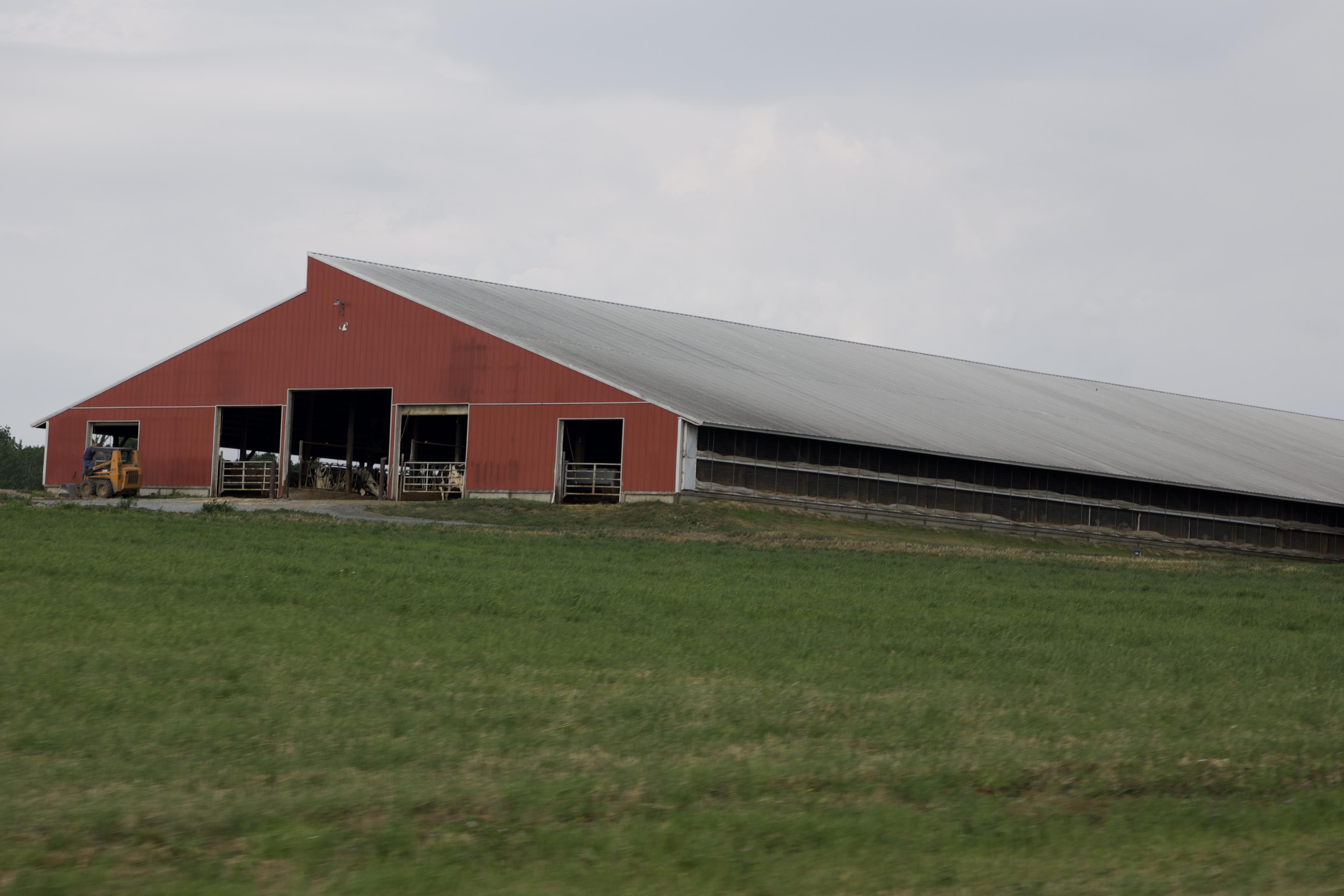Senator Bernie Sanders (I-Vermont) Being a dairy farmer in Vermont is not an easy life. The work is hard, the hours are long, and cows don't take weekends off. It's a seven day a week operation.
For Vermont farmers, milking cows is not only a source of income. It's a way of life. It's a love of the land. It's an attachment to a farm that, in many cases, has been handed down generation after generation.
We thank Vermont farmers not only for providing us with high-quality, locally produced milk, but for helping us keep Vermont as one of the most beautiful states in the country. Agriculture not only remains a very important part of the Vermont economy, but it is also a key component to tourism, another economic engine for the state.
Loren Wood is a dairy farmer in Shoreham, Vermont. Loren helped his dad and family start Woodnotch Farms with about 40 cows and 80 acres. Since then his farm has grown but Loren continues to run it with his family – his wife Gail, his four sons, his nephew, and the grandkids.
My staff drove over to Woodnotch to learn about the farm and take some photos . It was a beautiful day and Loren was able to take some time to show us around himself. I hope you’ll take a moment to take a look and see what Loren had to say.
Sincerely,

Q&A: An Interview with Loren Wood at Woodnotch Farms
Here are some photos and excerpts from the conversation.
(This interview has been edited for clarity and length.)
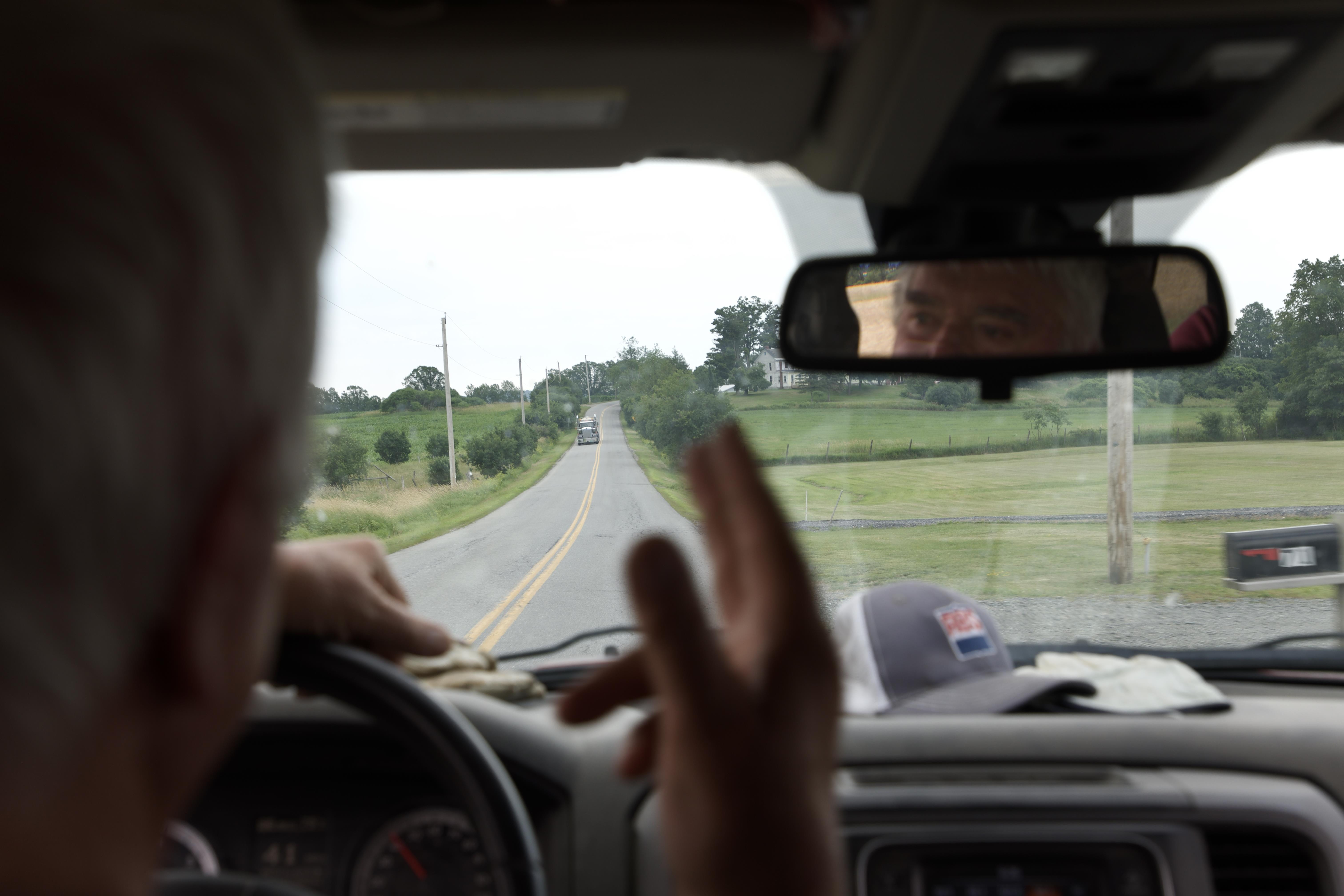
Q: Hey Loren, thanks again for taking the time to show us around and talk to us about your operation here. Can you tell us how big is Woodnotch today?
Loren: We’re incorporated now, Woodnotch Farms Incorporated. And that owns all the cows and equipment, and so on. When I got out of college we doubled the size of the barn, and milked 80 cows. Then we added a few more things here, a few more there. Today we have approximately 950 milking cows and own/rent 2,500 acres. I never saw myself milking this many cows, but with the boys and the way things are, it’s a good thing we are. We’ve tried to do as much as we can. It’s worked out well. And in Addison County, you have access to a lot of equipment, farm supply, mechanics. You can reach out and they’ll be here in five minutes. That’s important. Anything you want is here.
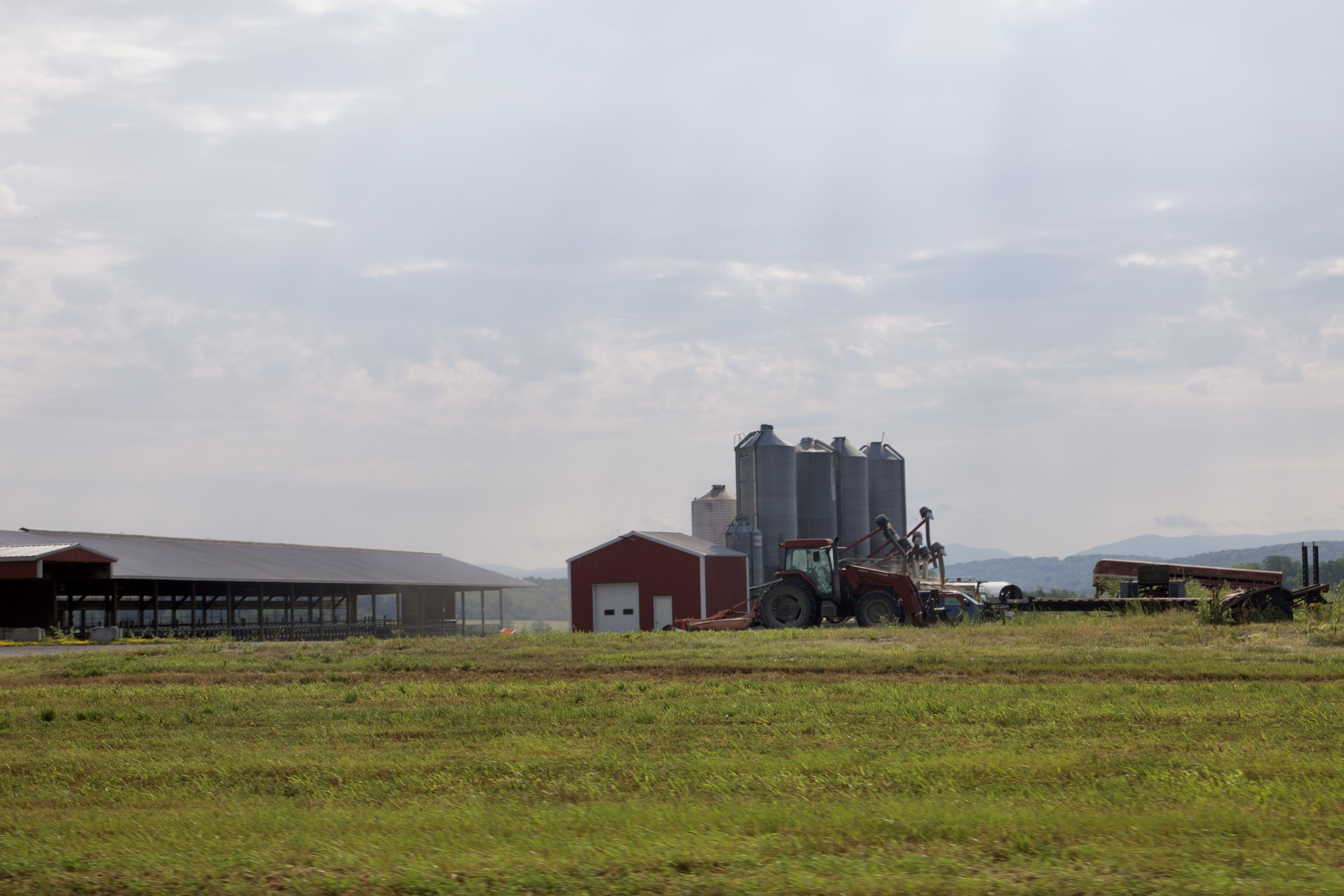
Q: And a lot of your land is conserved, is that right?
Loren: Yes, almost everything you see here is all conserved. So, you know that this will always be a farm. So that's important. You bust your ass all these years, quite honestly you’d like to know it’s always going to be here. The work you’ve done to get it to where it is, it is going to be here.
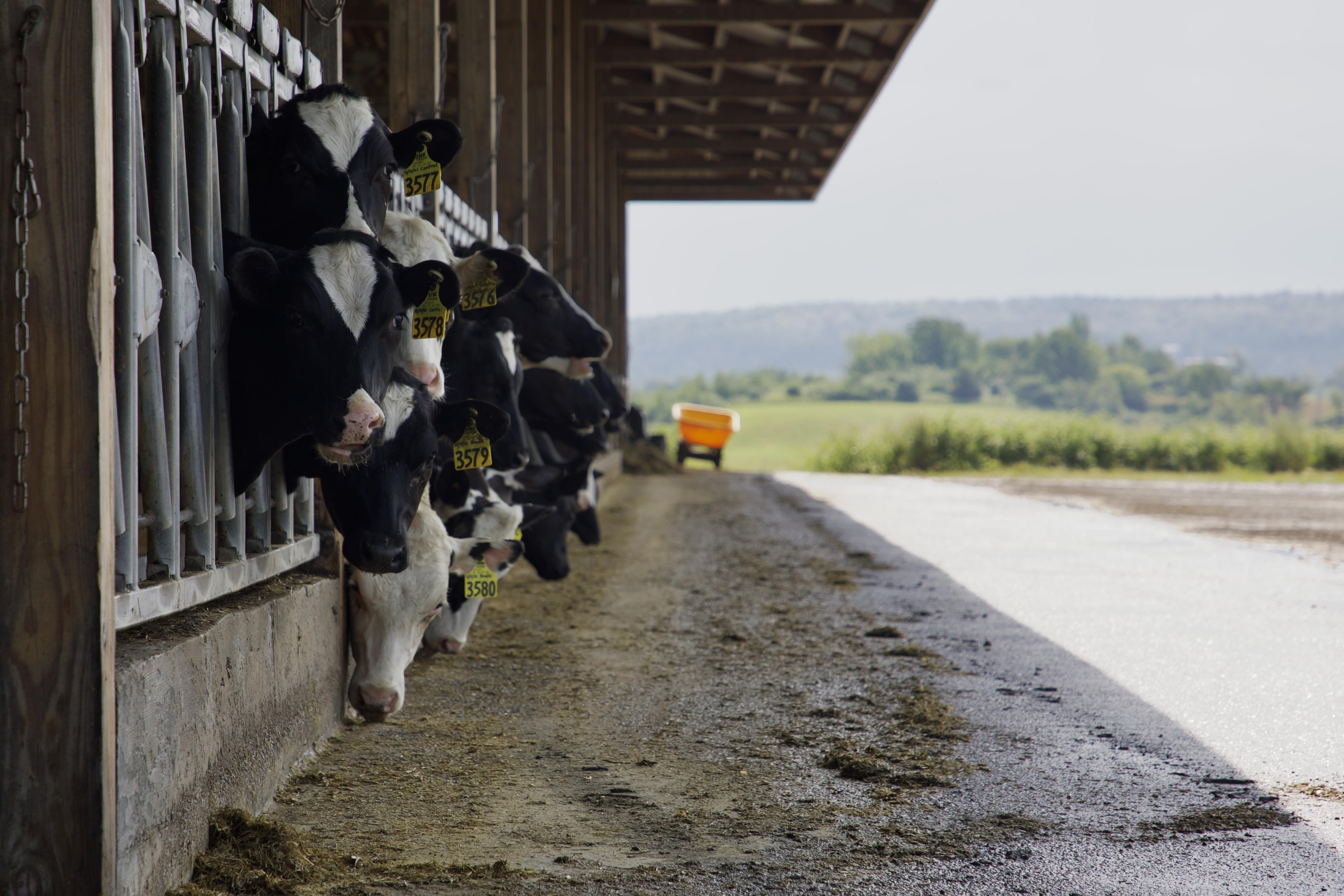
Q: What's a typical day or two like on the farm?
Loren: A typical day begins with the 4am milking, barn cleaning and mixing feed for the cows and heifers. Checking on the calving pen and tending to any cows in need of attention. In cropping season, the custom team heads off to work on our farm, or on one of the many customers’ farms – or performing preventative maintenance on equipment. At noon the second milking happens. And at 8pm the last milking of the day begins. Everyone sort of jumps in when and where they are needed. I like to keep the farm nice so when people drive by they can see it well kept. If it doesn’t say “drink milk” when they drive by, then we’re not doing it right.
Q: Sounds like a lot of work. If you could pass a message along to folks who don't know much about farming, what would you want them to know?
Loren: You know, at the end of the day 99% of farmers want to do a good job and are doing a good job. We want to make a good product for consumers, there’s no other way around it. I think that’s important to know.
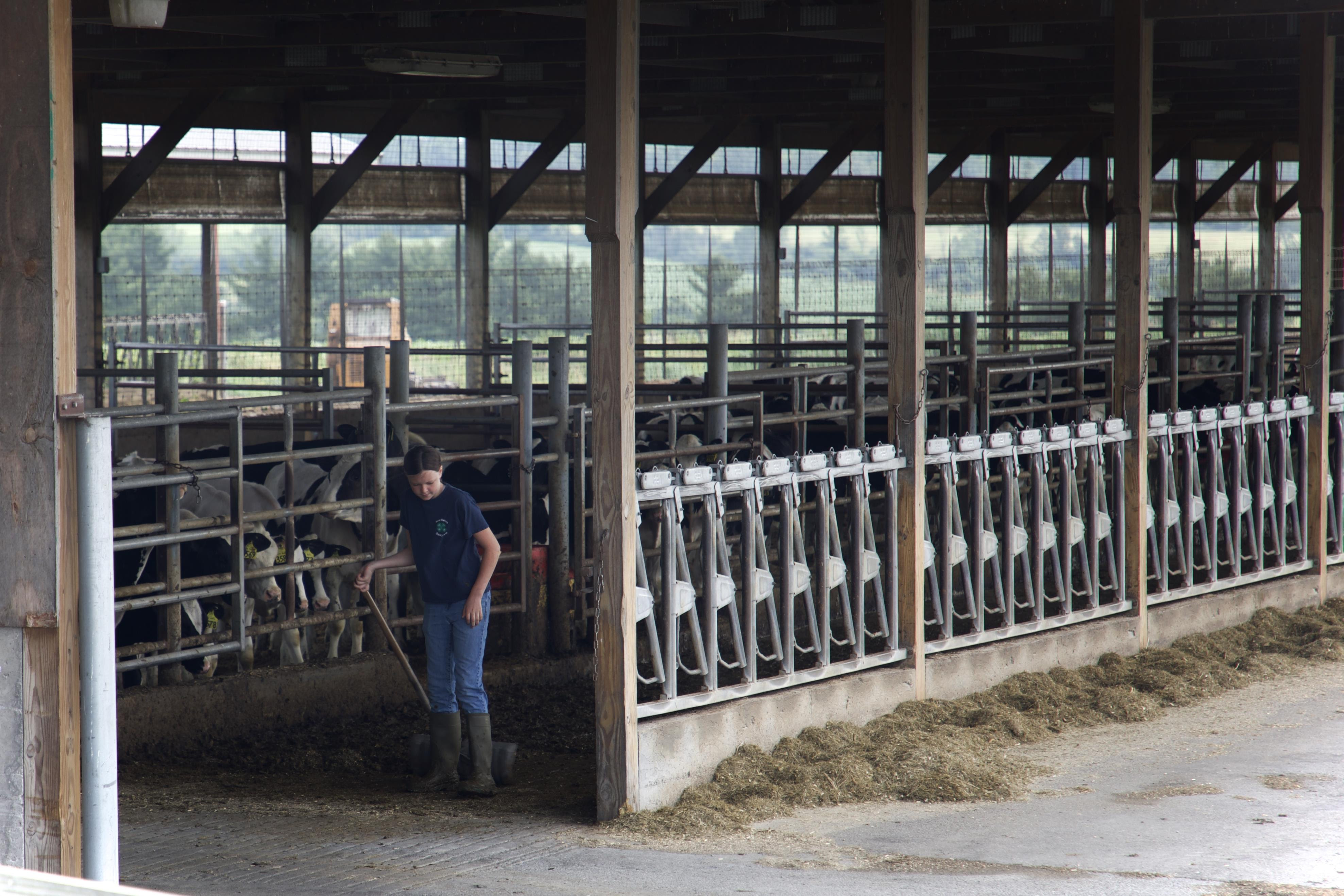
Q: Today you have four boys and a nephew? They all help out on the farm?
Loren: Yup, the oldest just turned 40. They’re of the age now that they’re not afraid to step out, be their own bosses, you know. This is all family-run, family-managed, and there’s always someone with the last name of Wood here. And I think that’s very important. It’s as much family as we can. When the boys were about 12, they were drawing pictures of barns and how they’d like to see everything one day. They were in it from the start.
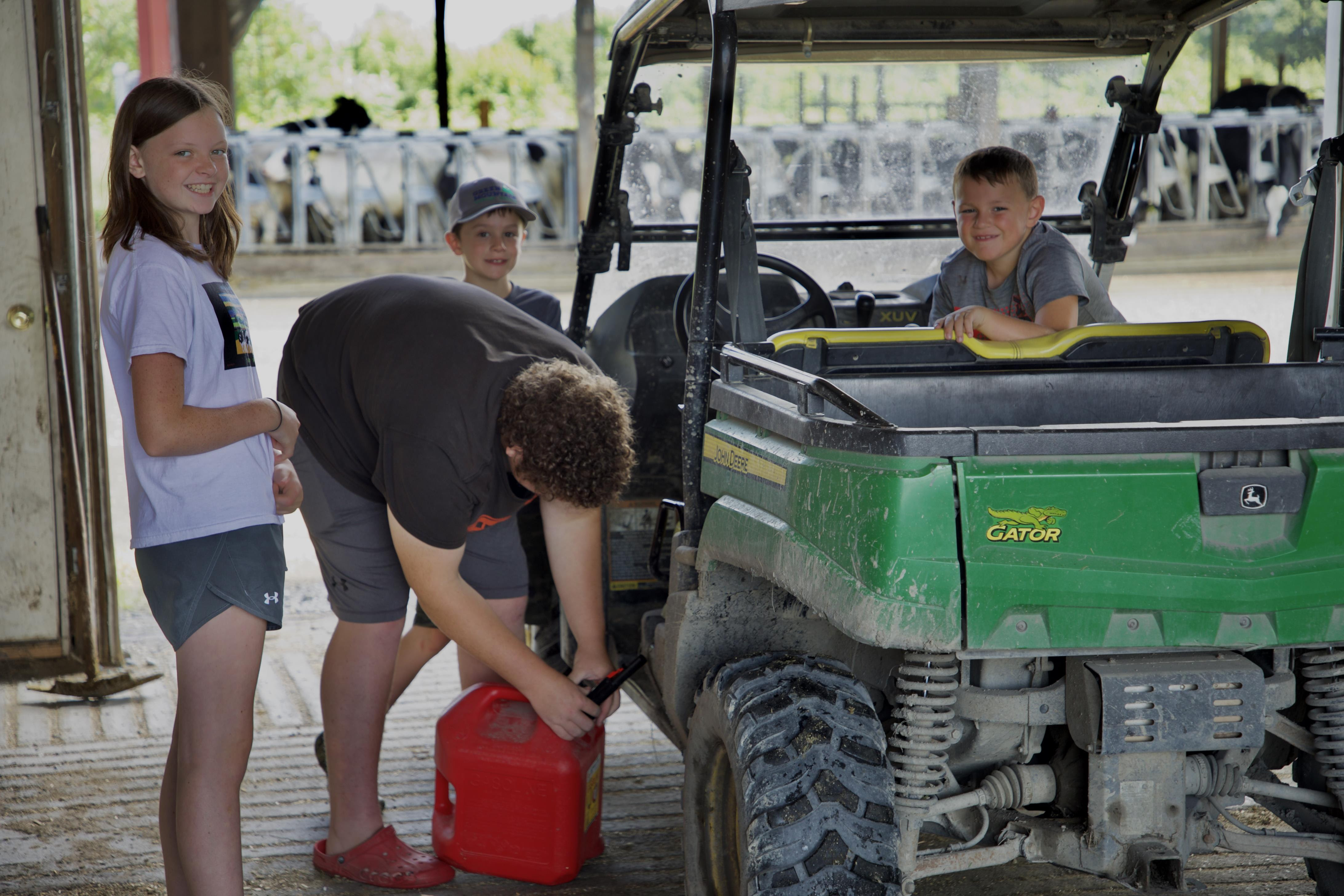
Q: Shifting gears a little to rural life in general, what do you think makes it special?
Loren: It’s kind of the class of people. It’s a different class of people. If you need something, there’s someone there who’s willing to help you if you’re in a jam.
Q: Do you have a favorite season?
Loren: Fall. I love chopping corn. Everything you’ve done all year is coming to a destination. The cows love the cooler days. Getting everything caught up before cold weather, that’s what I like the best.
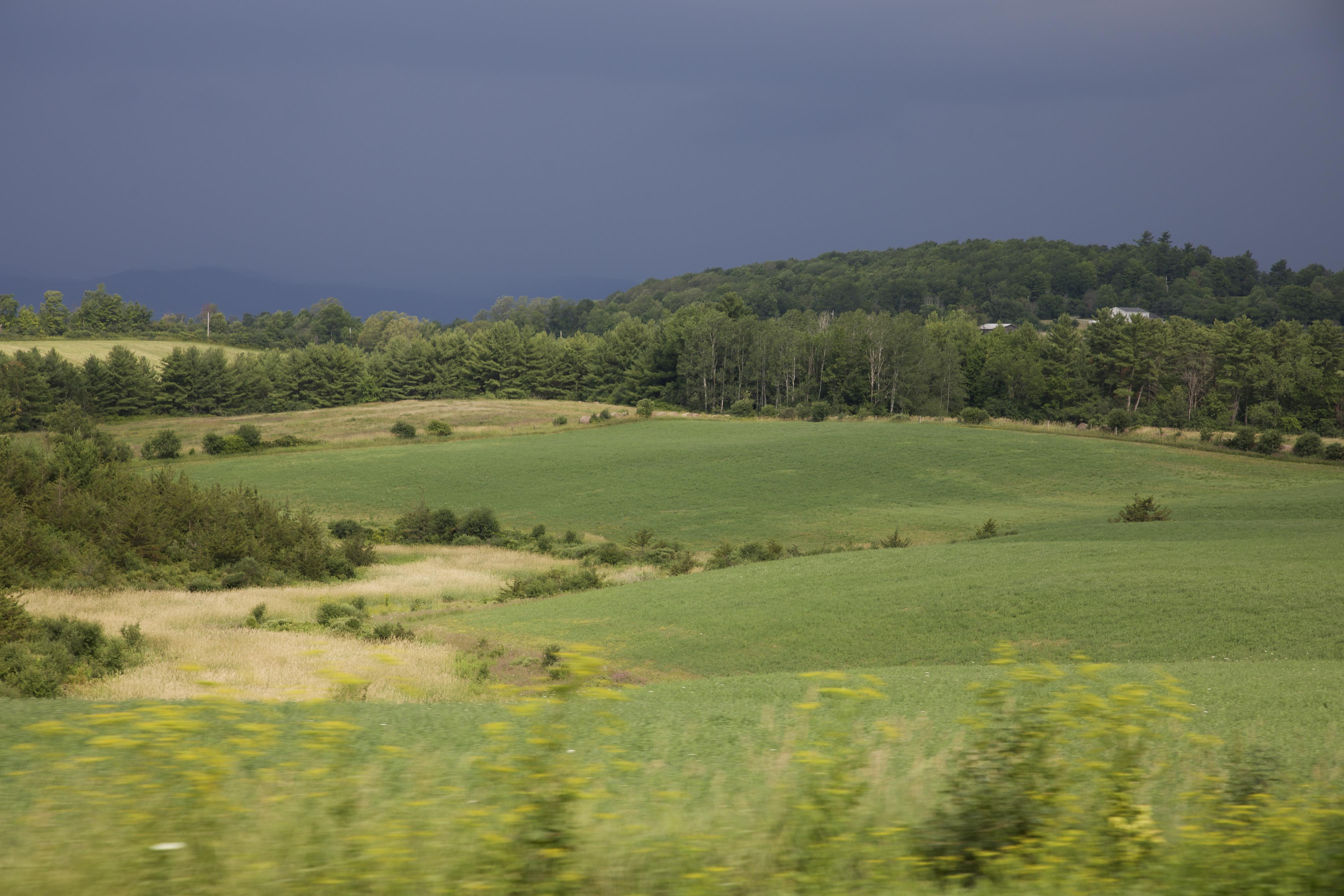
Q: What do you love most about farming in Vermont?
Loren: What better job can you have? You work with your four sons. Your grandchildren will jump in and ride with you. You see them every day. How many guys get to say, “I see my grandchildren every day.” Some days they certainly show an interest. I think the best part is being around your family.
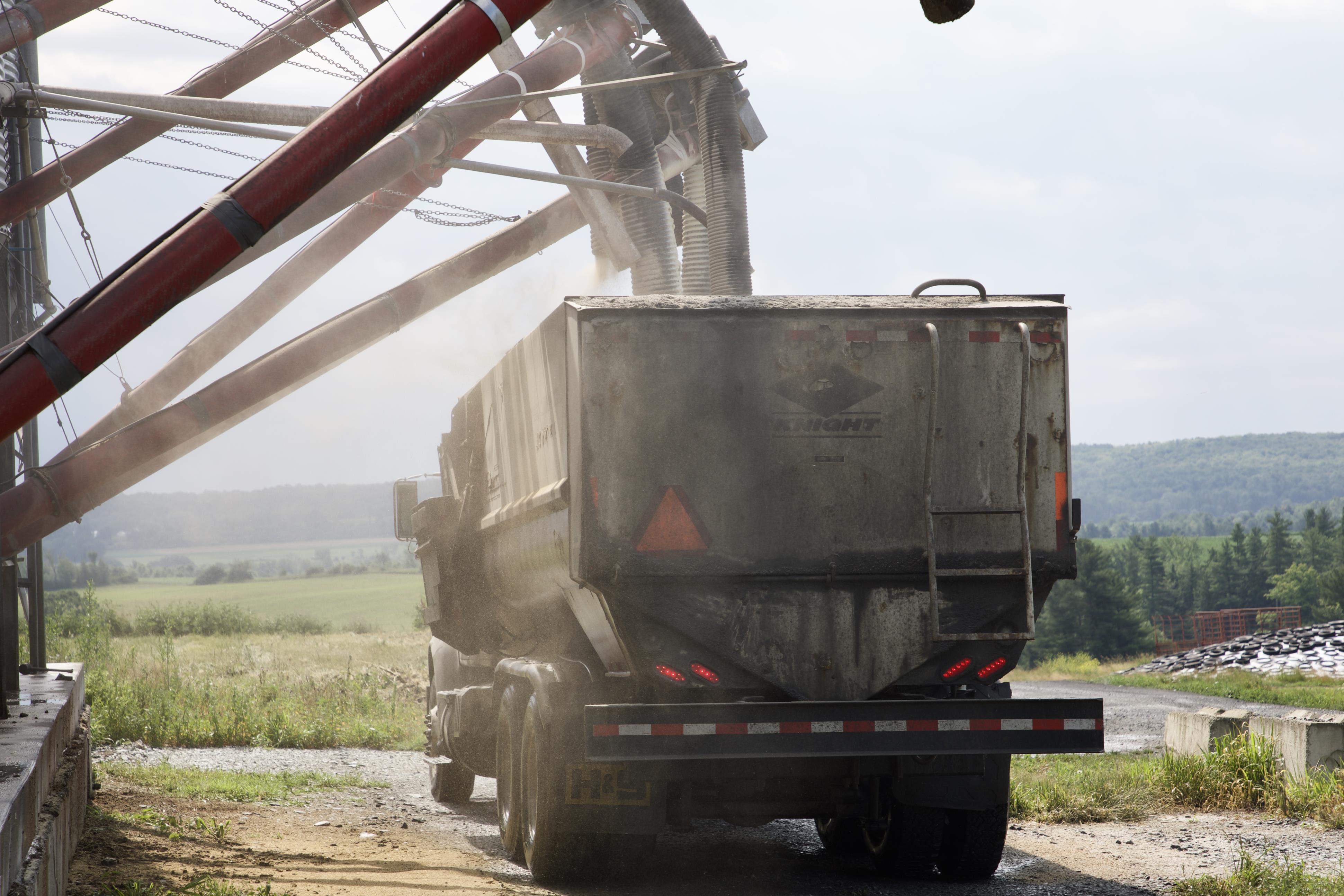
Q: Do you mind taking us back to the beginning? I heard you originally considered being a musician! Is that right?
Loren: Yes! I originally had the chance to be a musician, and turning that down wasn’t a really popular decision. But my father always wanted a larger farm and when I said, "I’m with you," it became that much more of a priority.
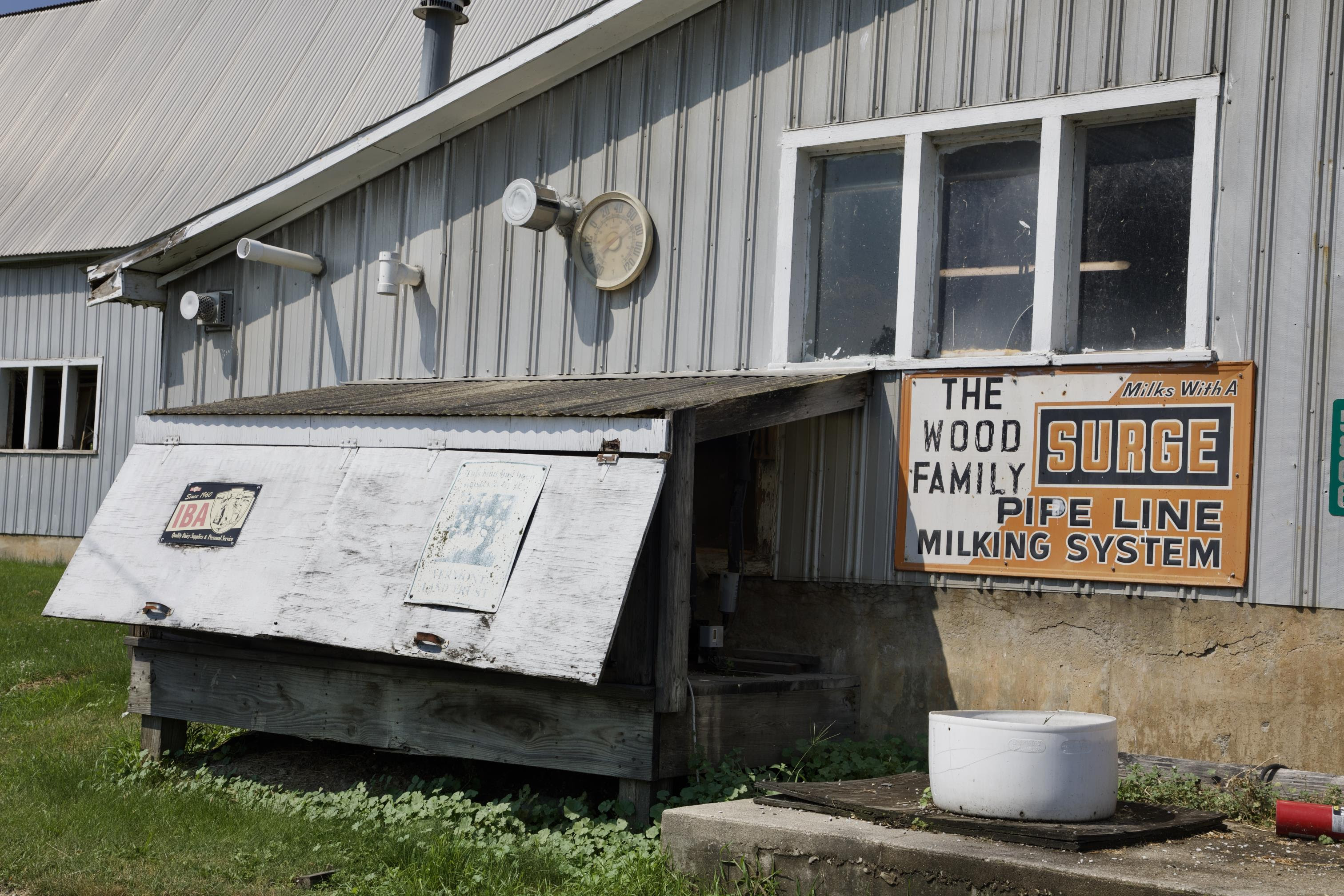
Q: Must have been quite a decision. Can you tell us a bit more about how all this got started?
Loren: You know, we moved here 50 years ago this fall. And you know when you work as hard as we’ve worked over the years…I’d like to take credit, but I can’t. My Mom and Dad started this all. And we’ve kept it going. We’ve made it bigger, more efficient, and all of that.
